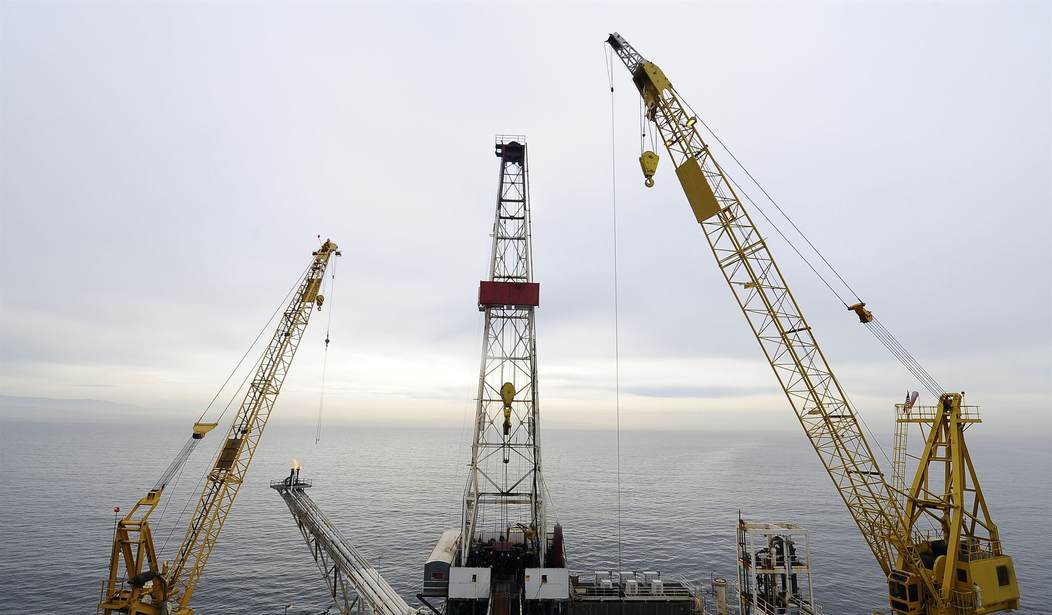A liberal judge just blocked one of President Trump's most important reforms -- one designed to create hundreds of thousands of jobs and keep our pump prices low.
Soon after taking office, President Trump opened America's offshore territories to oil and gas exploration. And despite the current shutdown, the Interior Department has continued to issue permits for seismic surveying, the first step in locating those deep-sea energy reserves.
But on Friday, Richard Gergel, a U.S. District Court Judge in South Carolina, issued a nationwide injunction to prevent the administration from issuing any new survey permits during the shutdown.
His decision is a rare victory for anti-drilling activists who want to resurrect Obama’s radical anti-fossil-fuel agenda. The keep-it-in-the-ground activists have all but been defeated by President Trump’s let-the-market-decide, America-first energy policy.
The forgotten men and women of this country are counting on energy freedom to unlock our offshore energy riches. And what riches lay at the end of this rainbow.
The Outer Continental Shelf -- the underwater land off the coast of Alaska, the Pacific states, the Gulf states, and the Eastern seaboard -- contains an estimated 90 billion barrels of oil and 327 trillion cubic feet of gas. Despite this immense bounty, the Obama administration rejected almost every proposal to drill in it, closing off over 90 percent of the territory.
In April 2017, President Trump issued an executive order opening it back up, setting the groundwork for drilling to start over the next five years. Accordingly, the Interior Department started processing five seismic testing permits for the mid-Atlantic shelf, stretching from Florida to Delaware.
Recommended
During these tests, ships fire highly compressed air into the ocean, producing sound waves that bounce off the seafloor. Those reflected waves are used to create three-dimensional maps of the underground topography, including the location of oil and gas reserves.
Activists have tried to paint seismic surveys as a violent disruption of the fragile ocean ecosystem. "Seismic testing risks injuring and killing critically endangered species," says Rep. Frank Pallone, a Democrat who chairs the House Energy and Commerce Committee.
That's hyperbole. The supposed danger of seismic surveys is "wildly exaggerated and not supported by the evidence," says William Y. Brown, the chief environmental officer at the Bureau of Ocean Energy Management during the Obama administration.
The Bureau has reassured concerned Americans that surveys in the mid-Atlantic territories "should not cause any deaths or injuries to the hearing of marine mammal[s] or sea turtles."
How can officials be so sure? Simply, seismic surveys are not dangerously loud. They're roughly as loud as naturally occurring sounds such as sperm whale echolocation, lightning strikes, and heavy waves. Perhaps the anti-fossil-fuel activists should camp near an industrial wind turbine to hear what the real energy noise issue is.
Nonetheless, activist-stoked hysteria is fueling a nationwide pushback against the Trump offshore program. Nine state attorneys general -- including those for Massachusetts, Virginia, and New York -- have sued the federal government to halt seismic surveying. Nine state legislatures are currently considering legislation that would severely limit offshore drilling. And Democrats have introduced seven separate anti-drilling bills in the House of Representatives.
Rep. Joe Cunningham (D-S.C.), who applauded Judge Gergel's ruling and is sponsoring one of the bills, says he wants a "permanent solution to the threat of dangerous and unwanted offshore drilling."
President Trump shouldn't budge. Fully developing the oil and gas resources in the Atlantic OCS would generate nearly a quarter of a million new jobs and add $22 billion to annual growth.
The bounty would also shore up ailing state budgets. Atlantic offshore drilling would funnel $2.5 billion to North Carolina, $1.5 billion to South Carolina, and $1.4 billion to Virginia in local and state tax revenue over 20 years, according to a recent report from the consulting firm Calash.
Seismic surveys are safe. And they'll help power the American energy renaissance to new heights of production and prosperity -- as long as President Trump doesn't let an anti-industrial fringe obstruct his agenda.

























Join the conversation as a VIP Member